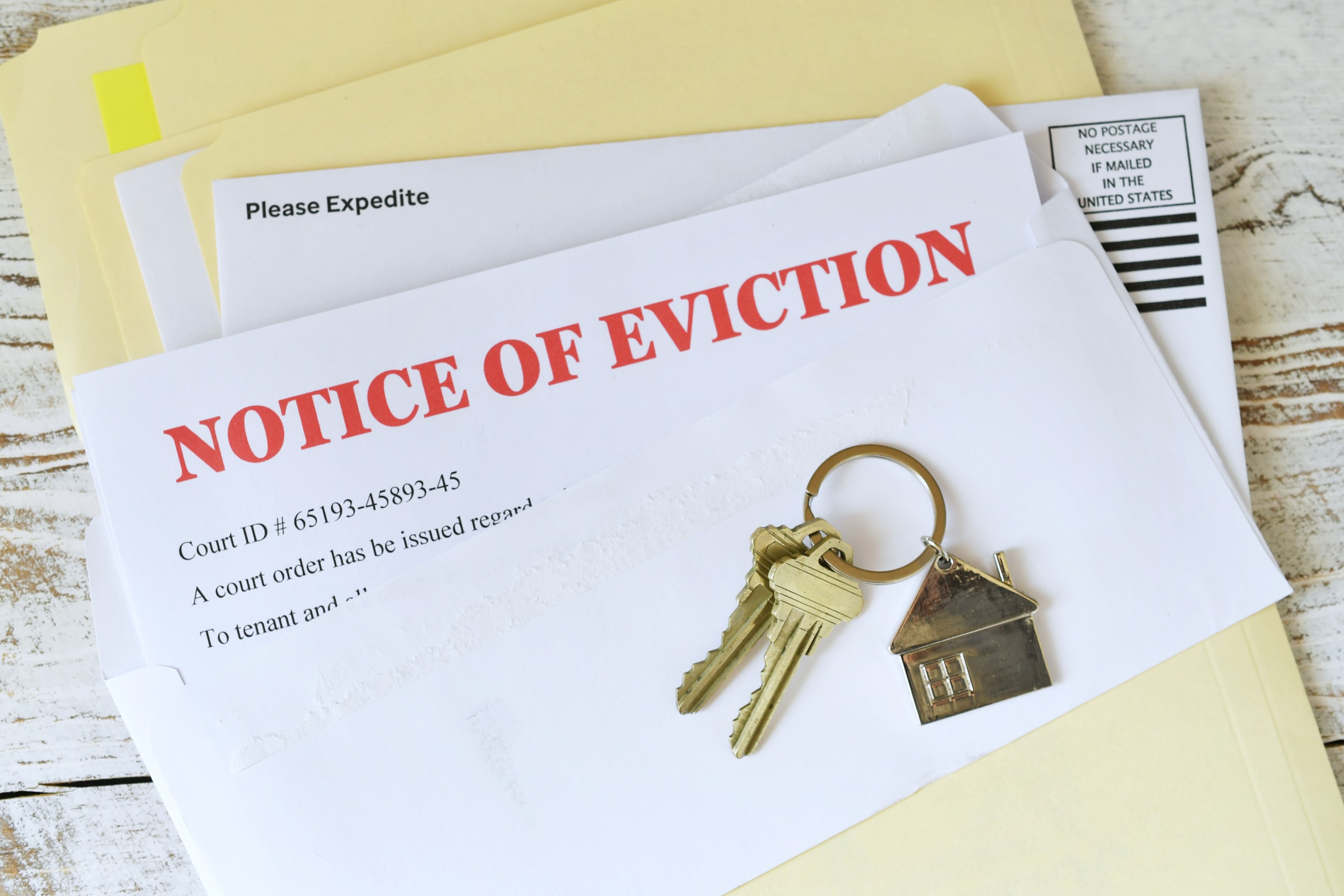How Can You Evict a Roommate: A Complete Legal Guide

Introduction
Living with roommates can be challenging, especially when relationships sour or someone stops paying rent. Individuals who have paid rent or agreed to pay are classified as tenants. Understanding the proper eviction process is crucial when you find yourself with an unwanted roommate who refuses to leave. This article outlines how to legally evict a problematic roommate while protecting yourself from potential wrongful eviction claims.
Remember that eviction is a formal legal procedure that varies based on state or local laws. Whether you’re a landlord, master tenant, or co-tenant, following the correct steps is essential to avoid legal complications.

Understanding Your Legal Standing
Before initiating an eviction, determine your legal relationship with your roommate:
- Master tenant: You are the primary leaseholder who sublets to others
- Co-tenant: Both you and your roommate signed the lease agreement with the landlord. Co-tenants typically cannot evict one another even if one stops paying or is violating the lease.
- Landlord: You own the property and rent directly to tenants
Your legal position significantly affects the eviction process you must follow.
Common Legal Grounds for Roommate Eviction
The following situations typically constitute valid reasons to evict a roommate:
- Not giving rent or consistently paying late
- Violating terms of the lease or sublease agreement
- Engaging in illegal activities on the property
- Causing significant damage to the rental unit
- Being violent or abusive toward other residents
- Unauthorized person living in the apartment
The Eviction Process: Step-by-Step Guide
1. Review Your Lease Agreement
Carefully examine your lease agreement to understand your rights and responsibilities. Look for clauses that address roommate issues and eviction procedures.
2. Try to Resolve the Issue Informally
Before pursuing formal eviction:
- Talk to your roommate about your concerns
- Suggest they leave voluntarily
- Consider offering financial incentives to vacate
- Document all communication attempts
3. Provide Written Notice to Vacate
If informal resolution fails, provide a formal eviction notice:
- Draft a written notice specifying the reason for eviction
- Include a move-out deadline (a reasonable amount of time based on local laws)
- Deliver the notice in person or via certified mail
- Keep copies of all documentation
4. File an Eviction Lawsuit
If your roommate doesn’t vacate after receiving notice:
- File an eviction case with your local housing court
- Pay the required filing fee
- Serve the roommate with court papers per local requirements
- Prepare evidence supporting your case
5. Attend the Court Hearing
During the court process:
- Present your case clearly to the judge
- Bring all relevant documentation
- Explain how the roommate violated the lease or rental terms
- Prove you followed proper eviction procedures
6. Enforce the Court Order
If the court rules in your favor:
- Obtain a writ of possession
- Schedule removal with local authorities
- Never attempt to physically remove a roommate yourself
- Allow officials to handle the actual eviction
Eviction Considerations
Paying Rent and Eviction
Paying rent is a fundamental aspect of the landlord-tenant relationship. When a tenant fails to pay rent, it can trigger the eviction process. Typically, the landlord will serve an eviction notice, which includes a deadline for the tenant to vacate the property. In some cases, tenants may halt the eviction process by paying the outstanding rent, but this is not always guaranteed.
If a tenant is paying rent but still faces eviction, it could be due to other reasons such as breaching lease terms or violating state or local laws. Understanding your rights and responsibilities regarding rent payment and eviction is crucial. Always review your lease agreement and be aware of local laws to ensure you are compliant and protected.
Wrongful Eviction and Liability
Wrongful eviction occurs when a landlord evicts a tenant without following the proper procedures or without a valid reason. This can lead to significant consequences for the landlord, including liability for damages such as lost rent, moving costs, and emotional distress. Additionally, landlords may face fines and penalties for violating state or local laws.
Tenants who believe they have been wrongfully evicted should seek legal advice to understand their options and protect their rights. Wrongful eviction can have serious repercussions for both parties, making it essential to follow the correct legal procedures to avoid disputes and potential liability.
Special Circumstances
Evicting a Family Member
Evicting a family member can be emotionally complicated, but follows similar legal procedures:
- Local laws may provide additional protections for family members
- Some jurisdictions require just cause for eviction
- Document all instances of lease violations
- Consider seeking legal help for these sensitive situations
Handling a Dangerous Roommate
If a roommate poses immediate harm:
- Contact local police if you feel unsafe
- Seek a restraining order if necessary
- Request emergency eviction proceedings in cases of threats or violence
- Consult a lawyer specializing in domestic violence cases
Master Tenants and Sublessees
A master tenant is a tenant who subleases a rental unit to another person, known as a sublessee. Master tenants have specific rights and responsibilities, including the right to collect rent from sublessees and the duty to maintain the rental unit. Sublessees, on the other hand, have the same rights as tenants, such as the right to a habitable living space and protection from wrongful eviction.
To avoid misunderstandings, master tenants and sublessees should have a written agreement outlining the terms of the sublease, including rent, length of tenancy, and responsibilities. Both parties should also be aware of state or local laws regarding subleasing and eviction to ensure compliance and protection.
Preparing for Court

If you are facing eviction, preparing for court is essential to protect your rights and interests. Start by gathering evidence such as rent payment records, lease agreements, and witness statements to support your case. Familiarize yourself with state or local laws regarding eviction and understand the court process.
Seeking legal advice from an experienced attorney can help you navigate the complexities of the court process and explore your options. Be prepared to negotiate with your landlord or the court to reach a mutually beneficial agreement. In some cases, mediation or arbitration may be viable alternatives to resolve the dispute without going to court.
Understanding the potential consequences of going to court, including the risk of eviction and damage to your credit score, is crucial. By being well-prepared and informed about your rights, you can navigate the court process more effectively and work towards a favorable outcome.
Common Mistakes to Avoid
- “Self-help” evictions (changing locks, removing belongings, shutting off utilities)
- Failing to provide proper written notice
- Not following jurisdiction-specific eviction rules
- Accepting partial rent payments during the eviction process
- Failing to document lease violations
- Attempting to evict without legal standing
FAQs

Q: How long does the eviction process take? A: The amount of time varies by location, but typically ranges from 3-12 weeks depending on court backlogs and whether the roommate contests the eviction.
Q: Can I evict a roommate if I’m not the landlord? A: If you’re the master tenant with a sublease agreement, yes. If you’re a co-tenant, you generally cannot evict another co-tenant but may petition the landlord to take action.
Q: Do I need a lawyer to evict a roommate? A: While not required, hiring a lawyer is advisable, especially for complex situations or when facing potential counterclaims.
Q: What if my roommate damages my personal property during the eviction? A: Document all damages, file a police report if necessary, and consider a separate small claims court action for personal property damages.
Q: Can my landlord evict just my roommate and not me? A: It depends on your lease agreement. If you have individual leases, yes. If you share one lease, the landlord may have to evict everyone and then allow the non-offending tenants to sign a new lease.
Did You Know?
- In most situations, police will not remove a roommate without a court order, even if they’re not on the lease
- Some cities have special eviction protections for tenants during winter months or emergencies
- Accepting even partial rent payments after serving an eviction notice can reset the entire process in many jurisdictions
- Some states require landlords to store a former tenant’s abandoned belongings for a certain amount of time
- Many communities offer free legal clinics to help with landlord–tenant disputes
- Security deposit disputes are among the most common issues during roommate evictions
When to Seek Professional Help
Consider consulting a lawyer if:
- Your roommate threatens legal action against you
- The eviction involves complicated circumstances like domestic violence
- You’re unsure about your legal rights in your jurisdiction
- The roommate has filed for bankruptcy (which may pause evictions)
- You believe you may face a wrongful eviction countersuit
By following the proper legal channels and understanding your rights and responsibilities, you can navigate the challenging process of evicting a roommate while minimizing legal risk. Remember that state or local laws vary significantly, so review specific regulations in your area before completing any eviction steps.
- A.S.
Next – Attorney for Police Harassment: Understanding Your Rights and Legal Options in Police Misconduct













